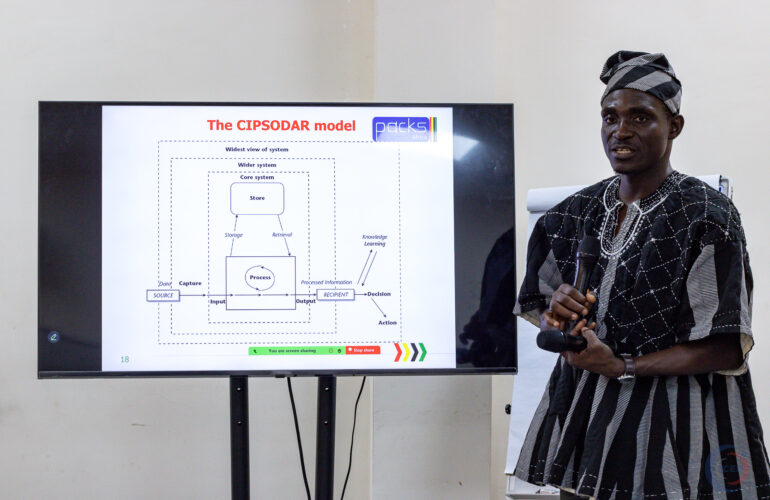
PACKS Africa, a youth-led capacity development think-tank, recently hosted an internal seminar titled Decolonising International Development and Research, facilitated by Kirchuffs Atengble, Research and Outreach lead at the organization. The seminar critically examined the colonial legacies embedded in international development practices, and explored pathways for decolonisation.
Mr. Atengble opened the discussion by defining international development as societal transformation on a global scale. He highlighted key issues, such as the dominance of Western ethnocentric concepts of development and the marginalization of indigenous knowledge systems. These challenges, he argued, are deeply rooted in the colonial foundations of development practices, resulting in persistent imbalances in philosophy, knowledge systems, and financing mechanisms.
As an example, the presentation explored the unequal distribution of global research funding, with Northern institutions typically controlling resources, while Southern partners are often treated as peripheral facilitators. Mr. Atengble pointed out that competitive, profit-driven global financial systems further entrench these colonial legacies, reinforcing power imbalances in the development sector.

In his conclusion, Kirchuffs called for a paradigm shift to decolonise development by dismantling power asymmetries, embracing diverse knowledge systems, and fostering multi-stakeholder participation. He advocated for a move towards human-centered philosophies like Ubuntu, which emphasize collaboration and interconnectedness over competition.
The monthly internal seminar series is part of capacity strengthening efforts locally within PACKS Africa; and this theme reflects the organisation contribution to the broader movement of decolonising international development and research, pushing for the inclusion of indigenous knowledge, inclusivity, and plurality in global development discourse. The facilitator emphasized the critical role of research in identifying challenges, shaping policies, and driving innovation to solve development problems.
The session ended with a call to action, urging the formation of alliances and collective movements committed to internalizing decolonised values and translating them into sustained, transformative action.



